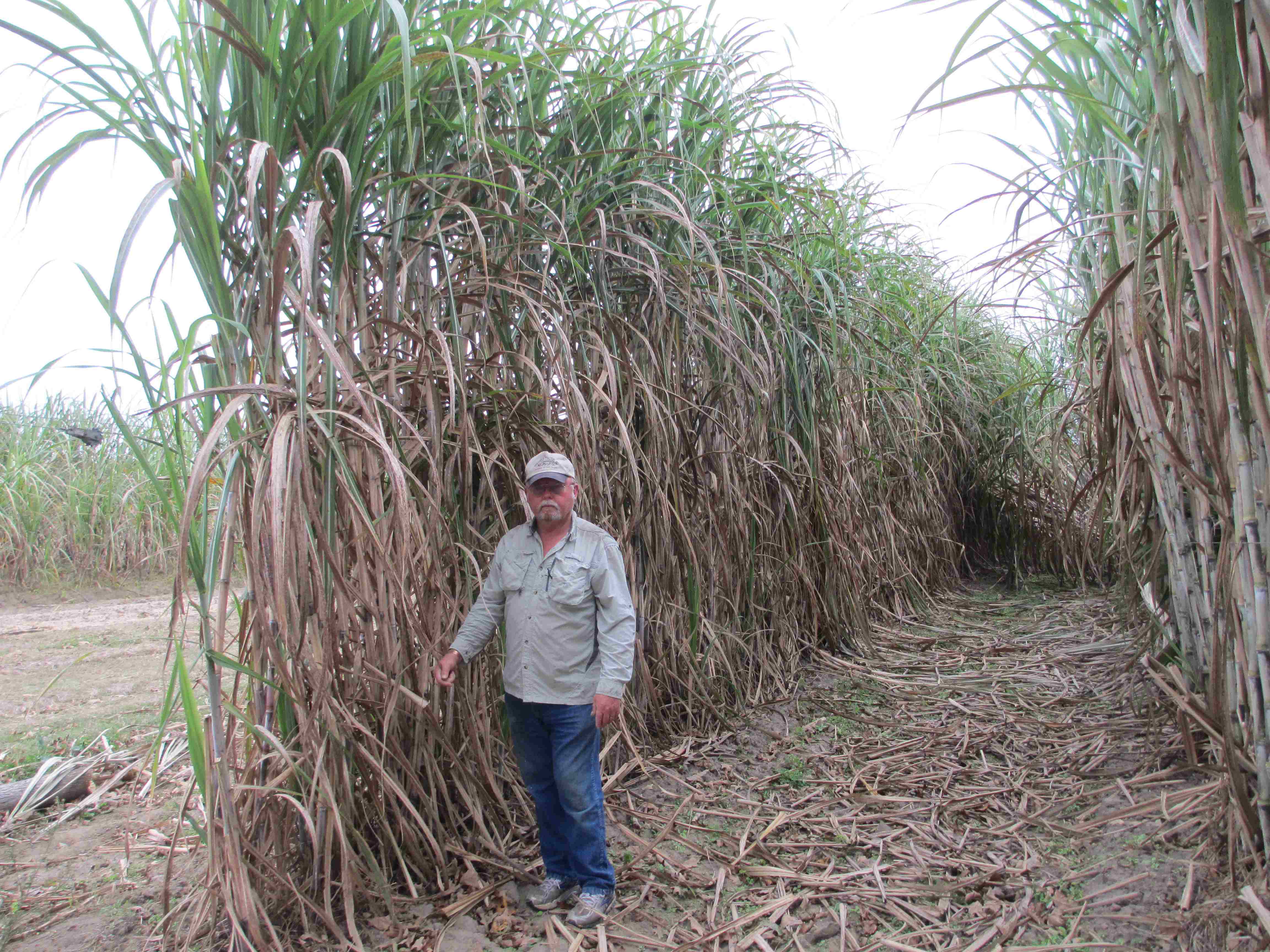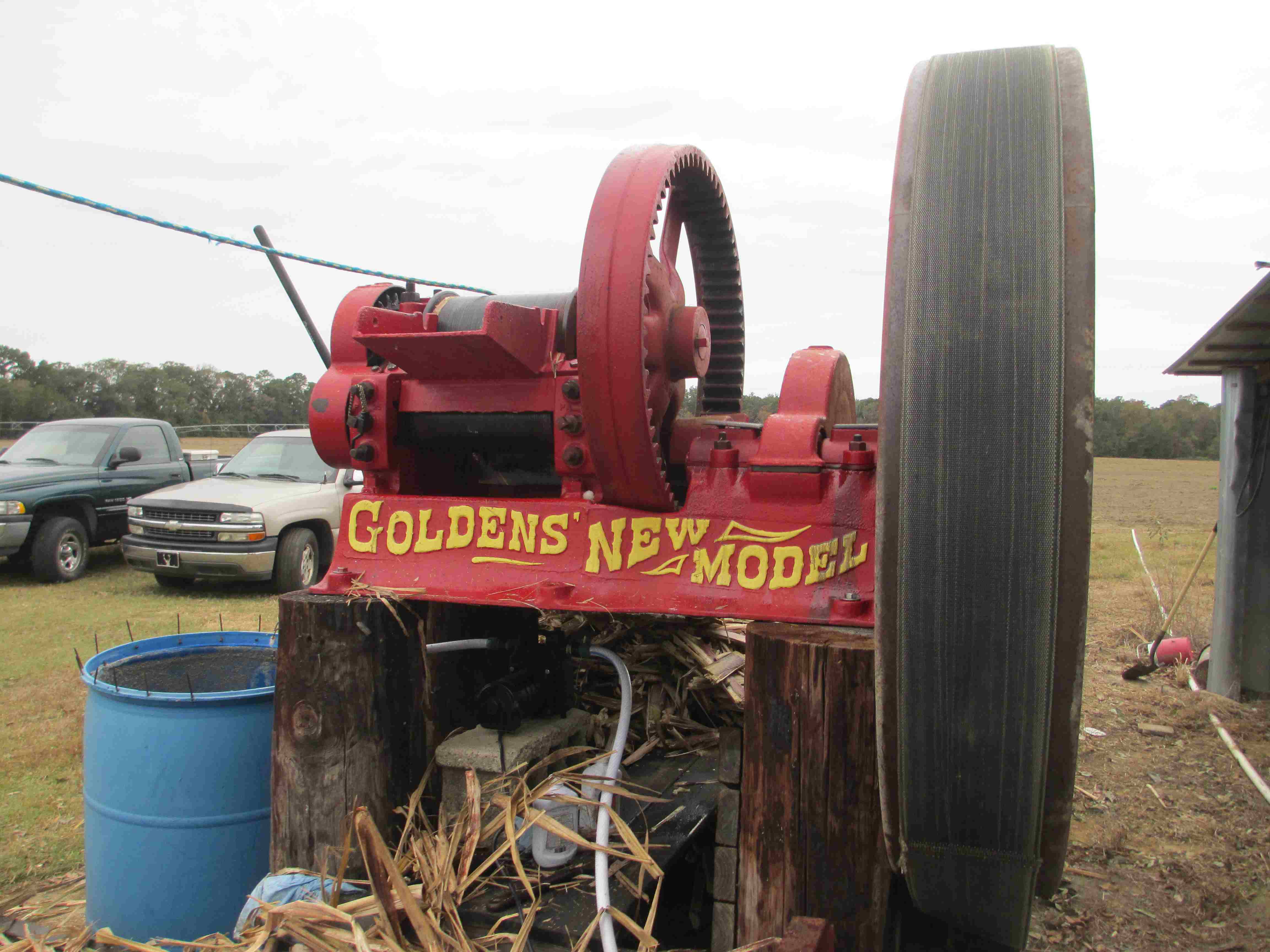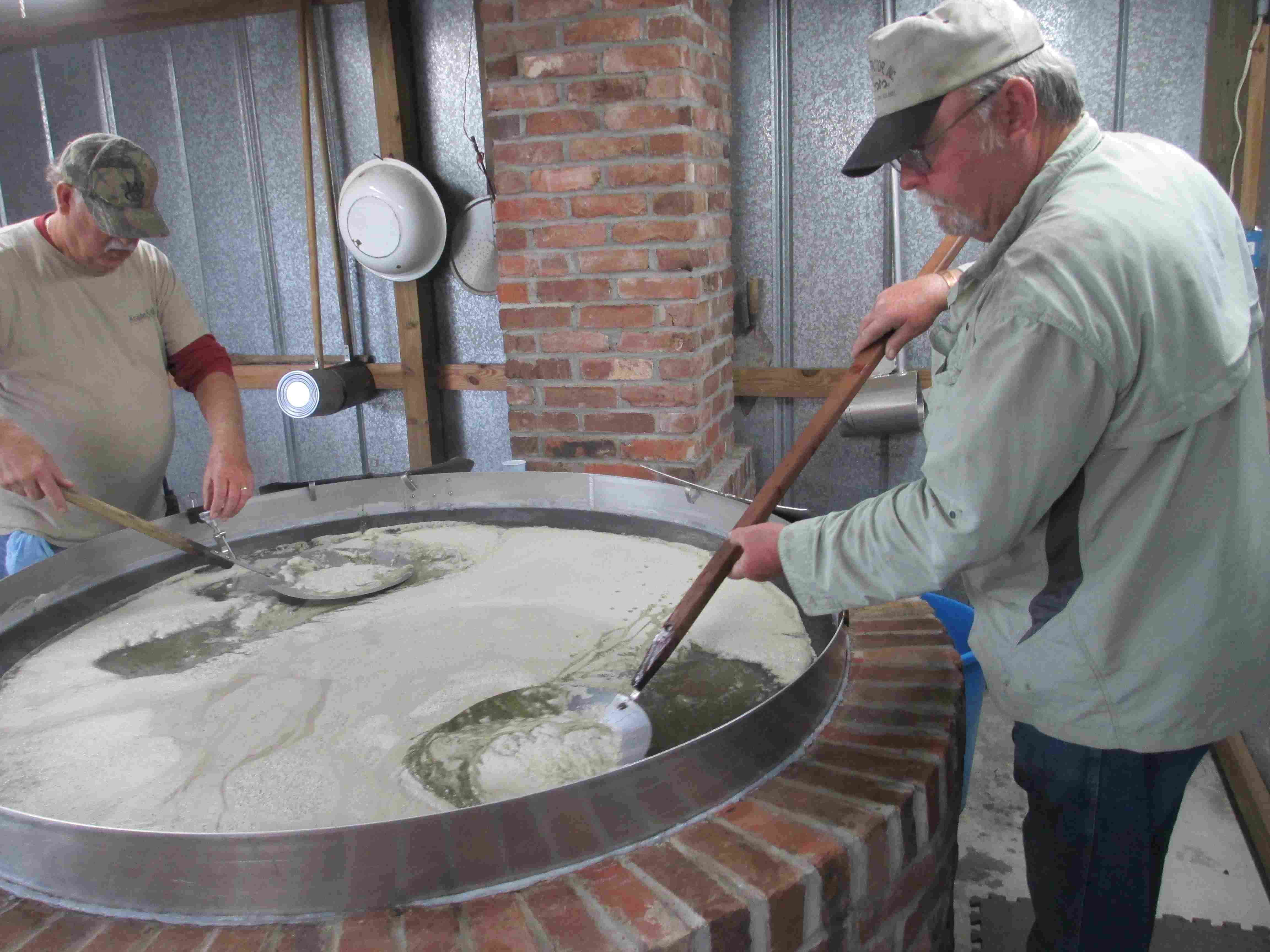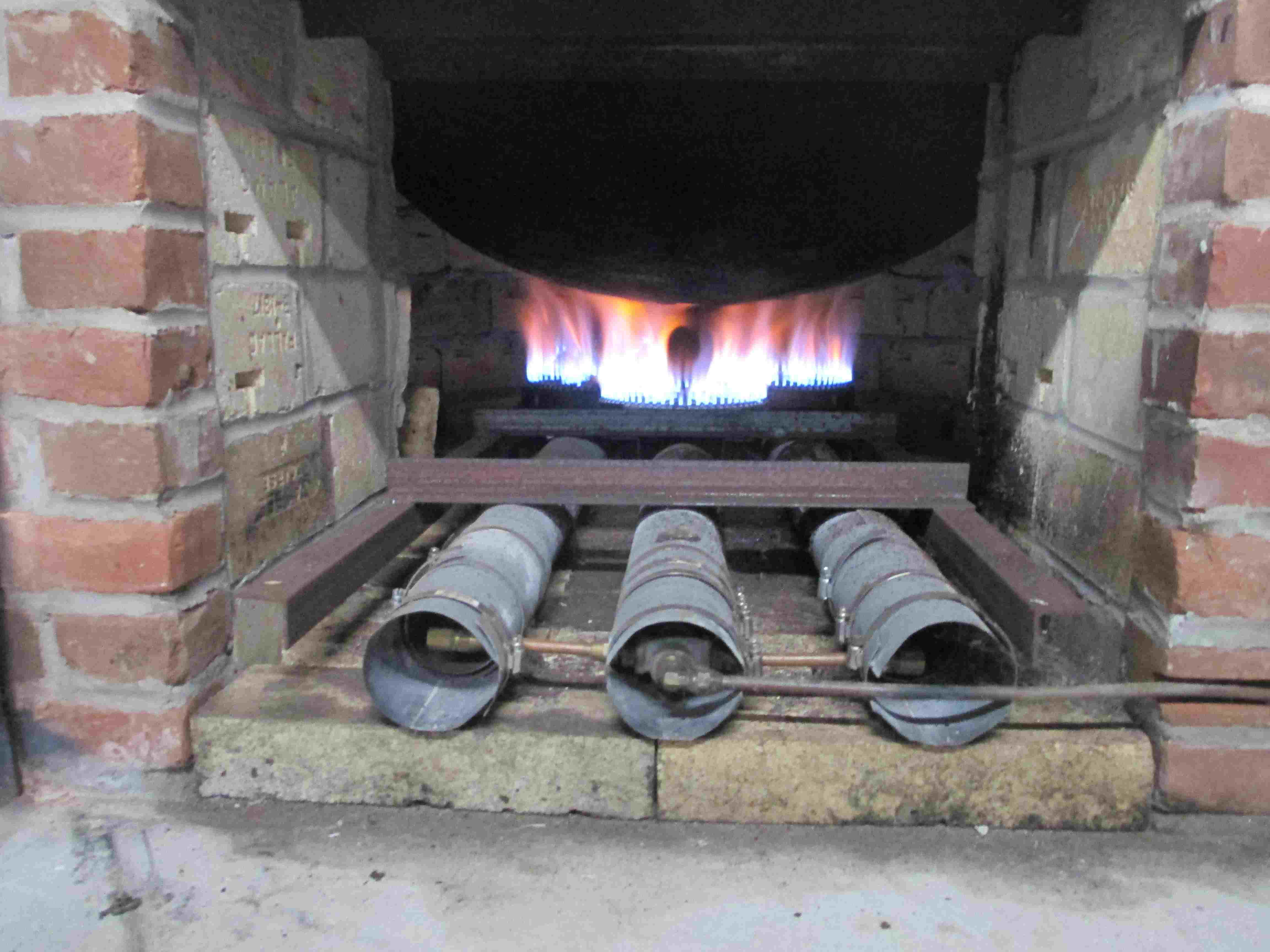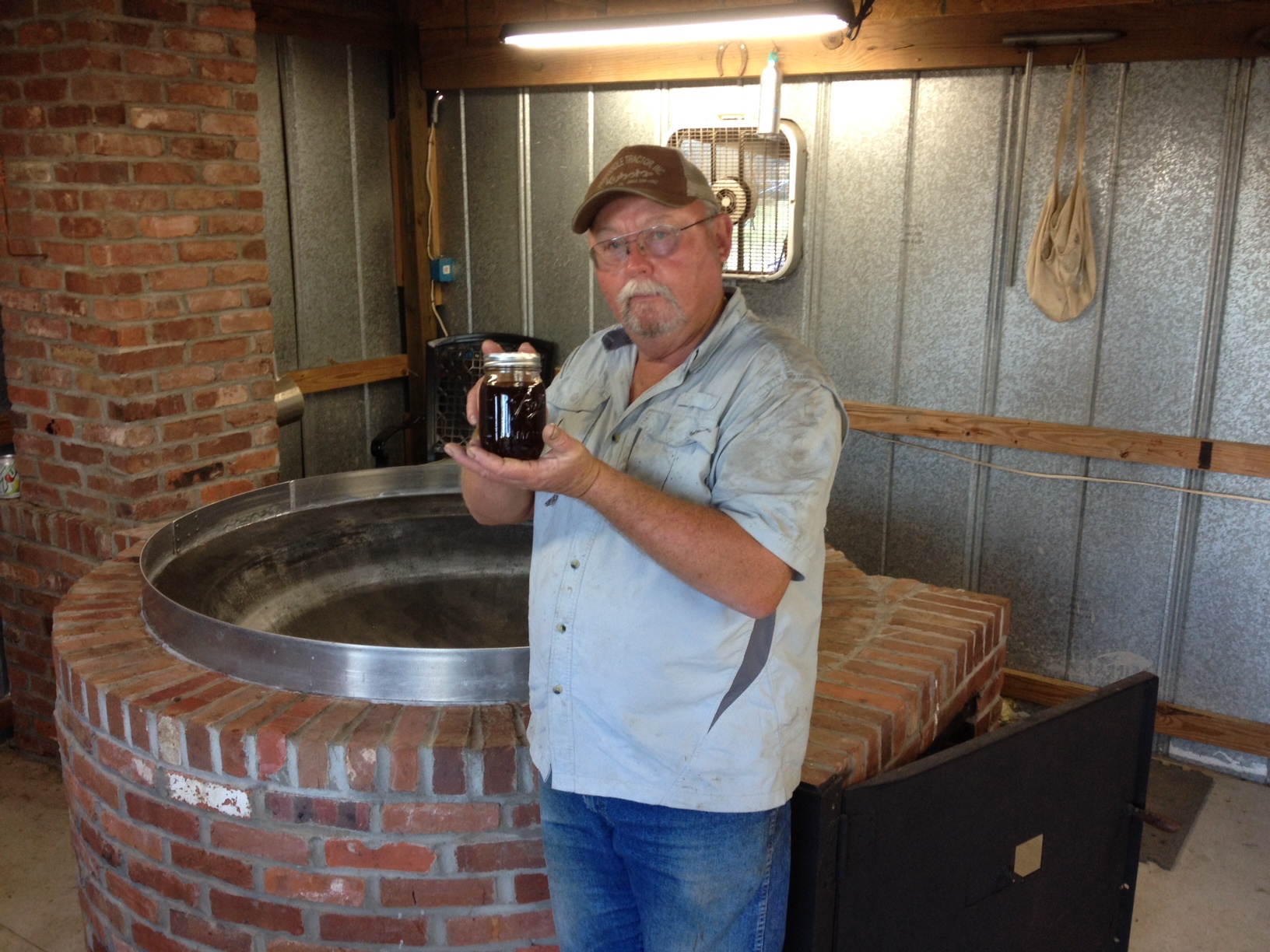Sugarcane is a crop that many folks eat at every meal of the day, without ever realizing it. Commercially, it is used to make sugar crystals which are incorporated into many foods we eat. However, in the Southern United States, sugarcane has been used since before the Civil War to make cane syrup. Cane syrup was a major source of calories for Southerners, and was usually a part of at least one meal every day.
Cane syrup is made from old varieties of sugarcane that were selected because the sugars in the juice resist crystallization, making the syrup last longer in storage. Sugar cane is planted from pieces of “seed” cane in the spring of each year (or sometimes the fall of the preceding year) and grows until mature, usually around the middle of November. The cane is then harvested and crushed in a cane mill, which squeezes the sweet cane juice from the stalks.
The cane juice can be consumed raw, but to make syrup, it is cooked for 4 – 8 hours in a kettle. As the juice is cooking, the waxes and other impurities are skimmed off the top. During the cooking process, water is evaporated from the juice, as it goes through various color and texture changes, until it becomes pure cane syrup.
One sugarcane grower who is still practicing the tradition of syrup making, is Terry Mercer of Grand Ridge. If you would like more information on growing sugarcane, download the following publications:
Backyard Sugarcane
UF/IFAS Sugarcane Handbook
- Carinata Starting to Come Up in Jackson County - December 12, 2014
- Wheat Production Considerations for 2014-2015 - November 10, 2014
- Peanut and Cotton Harvest Video 2014 - November 10, 2014

